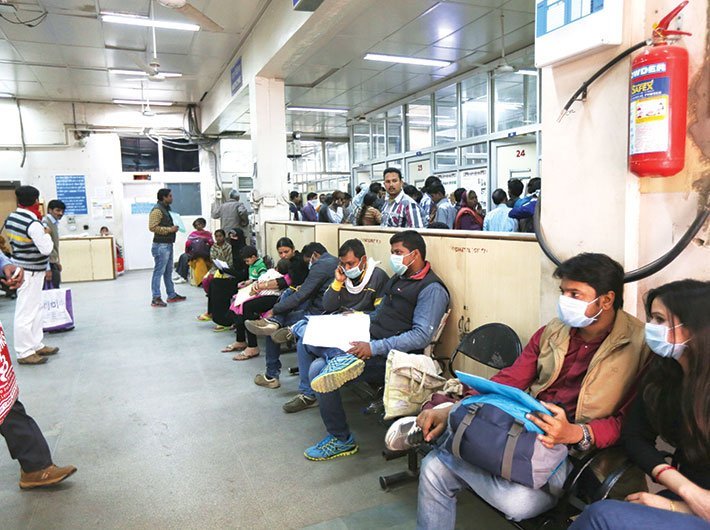The world’s first malaria vaccine will be rolled out in pilot settings in 2018, the results of which would give an indication of whether they can be deployed on a wider scale, the World Health Organisation confirmed on Friday.
The first-generation vaccine known as RTS, S will be tried in pilot projects in sub-Saharan Africa in 2018. Also known as Mosquirix, it works against P. falciparum, the most deadly malaria parasite globally, and has been in development for the past three decades. Until now, vaccines fought viruses and bacteria but this is the first vaccine of its kind to fight parasites targeting the T-cells, which are part of the body’s immune system.
“The pilot deployment of this first-generation vaccine marks a milestone in the fight against malaria,” said Dr. Pedro Alonso, Director of the WHO Global Malaria Programme, said in a statement.
WHO estimates that India takes the disproportionate burden for the vector-borne disease accounting for 75 percent of all malaria cases in South-East Asia. About 95 percent of the Indian population resides in malaria-endemic areas. However, 80 percent of the disease is concentrated in areas where 20 percent of the population resides in tribal and hard-to-reach or inaccessible areas—typically rural areas of eastern and north-eastern states.
Three of the world’s biggest health financing institutions—Gavi: the Vaccine Alliance, the Global Fund to Fight AIDS, Tuberculosis and Malaria and UNITAID—came together to tackle a disease that killed 4,38,000 people, largely children, in 2015.
While the Global Fund yesterday approved $15 million for the malaria vaccine pilots, Gavi and UNITAID had earlier in the year announced commitments of up to $27.5 million and $9.6 million, respectively, for the first four years of the vaccine programme.
RTS,S that has been developed by British drugmaker GlaxoSmithKline is, however, only partially effective and will only be deployed on a pilot basis before a call on its wide-scale use is taken.
It is the only vaccine to have successfully completed the important Phase 3 clinical trials, involving 15,000 infants and young children in seven countries in sub-Saharan Africa.
However, with the older children (between five and 17 months of age) who participated in the clinical trials, there was a risk of febrile seizures within a week after any one of the four doses of the vaccine while with infants, these seizures were apparent only after the fourth dose. WHO says that there were “no long-lasting consequences due to any of the febrile seizures”.
Also, during the Phase 3 RTS,S trials, meningitis and cerebral malaria cases increased among the older children who received the malaria vaccine as compared to the control group. However, no such increase was observed in infants aged 6–12 weeks. The significance of these findings in relation to the vaccination is unclear, the UN’s health agency says.
Mosquirix, created as a partnership between GSK and the PATH Malaria Vaccine Initiative (MVI), needed an investment of more than $565 million of which Bill and Melinda Gates Foundation have contributed more than $200 million while African research centres contributed the rest.
The vaccine was approved by the European Medicines Agency in July last year paving the way for WHO to adopt the SAGE-MPAC recommendations at the beginning of the year of a pilot implementation of the RTS,S vaccine in three to five settings in sub-Saharan Africa.
“These pilots are critical to determine whether this vaccine can be rolled out more broadly, adding an important new tool to the proven interventions we already have in the fight against malaria,” Dr Seth Berkley, CEO of Gavi, the Vaccine Alliance said.

